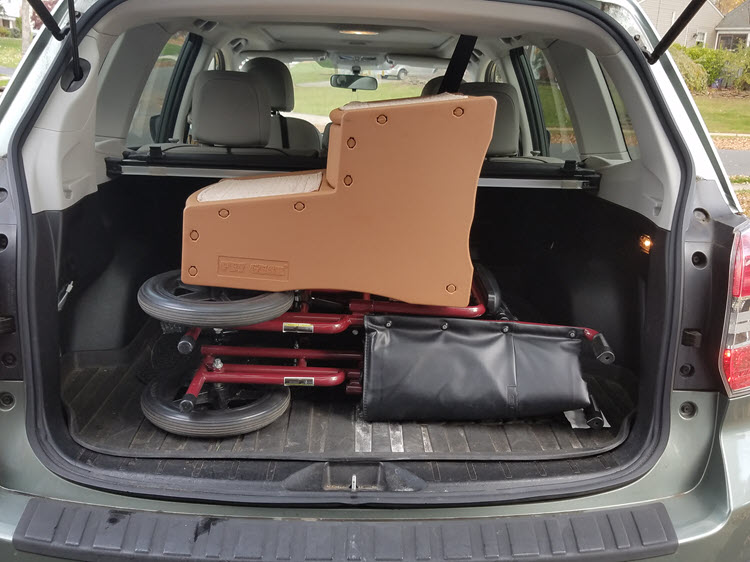How many generations do you care for?
I have talked to many caregivers whose back seat holds their mother’s walker and grandchild’s car seat. In my caregiving world, it is my mother’s wheelchair and steps that my 13-year-old dog Josh uses to get into the car.
I’m not a traditional “sandwich” generation example. I don’t care for an aging parent while supporting children and grandchildren. But Josh is an important part of our lives, especially since Mom’s beloved dog Bella died a year ago. I am responsible for Mom’s and Josh’s every need, for their health, for Mom’s house and mine, even as I work long hours to keep my business viable.
There are those in their 60’s like me caring for parents in their 80’s and 90’s. There are Millennials who are finishing school or starting out in their careers while they juggle caregiving for parents and grandparents. There are caregivers in middle school and high school who help care for a parent with a chronic disease like ALS or MS or help care for a sibling or grandparent. These youngest caregivers are the most hidden but are growing in numbers as the grandparents who raise them need help themselves.
When Josh is with me at Mom’s, I’m constantly in caregiver mode for both of them and it’s exhausting. Leaving Josh home isn’t an option. Mom misses having a dog and he fills that void. As his needs increase, I don’t feel comfortable asking someone to stay with him and frankly, I can’t afford it. Compared to other caregivers I know who are caring for a spouse, a parent and still fulfilling the role of grandparent, I have it easy. But this is my life and some days it is hard.
I’ve been Mom’s caregiver for five and a half years. Soon I will be 63 and I’m starting to feel it. Getting her wheelchair into the back of my car is hard on some days. I worry about a back injury that will make it a problem. Right now we are seeing an eye doctor once a week and we don’t have time for me to get hurt. Even as I write that sentence, I know how crazy the thought is, because taking care of myself is critical for both of us. As her mobility decreases, I am on standby any time she moves to follow her and steady her if she needs it. I worry that at some point she will need more help than I can give her.
I’m not alone in this situation. Two years ago, the Center for Retirement Research at Boston College found that 10 percent of adults ages 60-69 are caregivers to parents and twelve percent of adults age 70 and older are in the same situation. I wonder how much higher the percentages are now? An even earlier study found that 17 percent of adult children will become caregivers for their parents and the likelihood of taking on that role increases with age.
According to the 2020 Census, the oldest boomers will turn 74 next year, while about 10,000 a day turn 65. This has enormous implications for their children. As parents move into their 80’s, which is typically when chronic health conditions develop their children will into a caregiving role. The average number of hours per month provided to aging parents is 77 and this can take a toll on the health and finances as the caregiving years add up.
For me, there are two important events this year. The first is completing the 2020 Census because it helps to decide how billions of federal funds are spent over the next 10 years; funds that are used for critical public services, many of which are lifelines for our elders. The second is the November election. Politics aside, it is important to me that caregiving is something that is on the agenda of our leaders. Without a national discussion and some action, more and more family caregivers will find themselves drowning in debt and chronic health conditions with little to no safety net for themselves and their loved ones.
Where do your caregiving worlds collide? What steps can you take to proactively be prepared?
Disclaimer: The material in this blog is for educational purposes only. It is not intended to replace, nor does it replace, consulting with a physician, lawyer, accountant, financial planner or other qualified professional.
Deb is available as a caregiver consultant. She will answer the question: “Where do I start?” and find the resources to alleviate your stress. If you would like to invest a half hour to learn how she can help you, please contact her at: deb@advocateformomanddad.com

